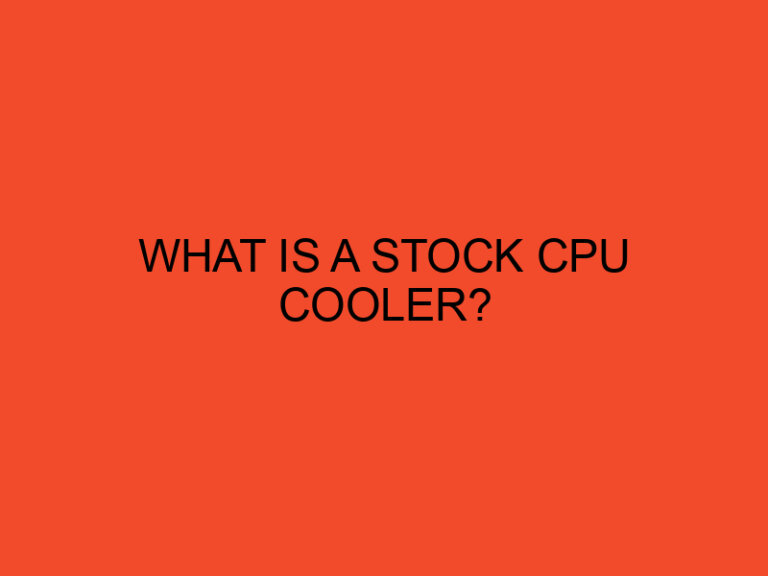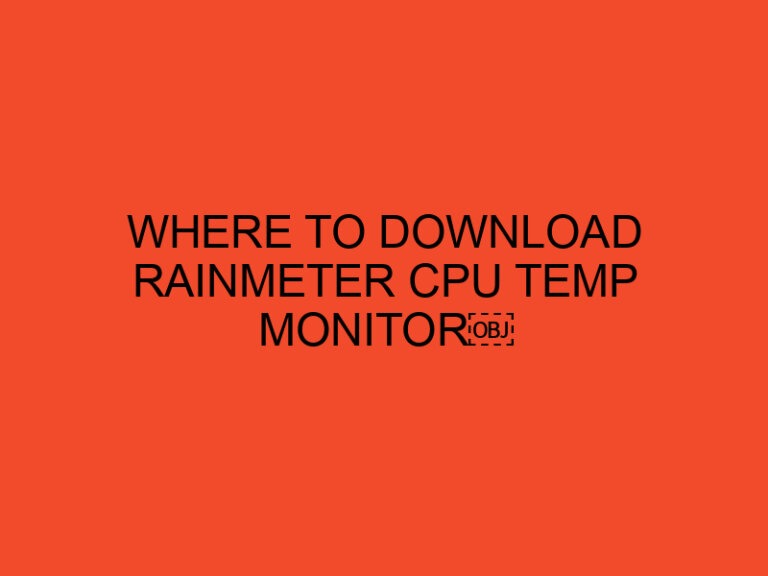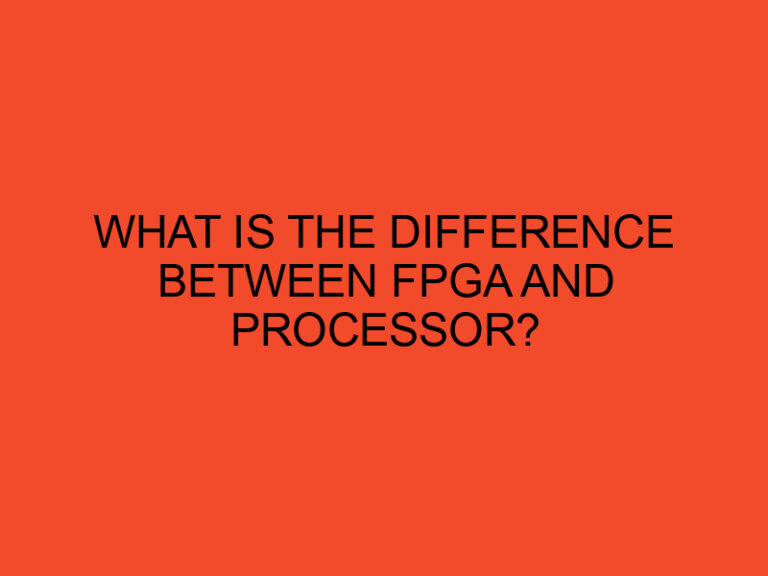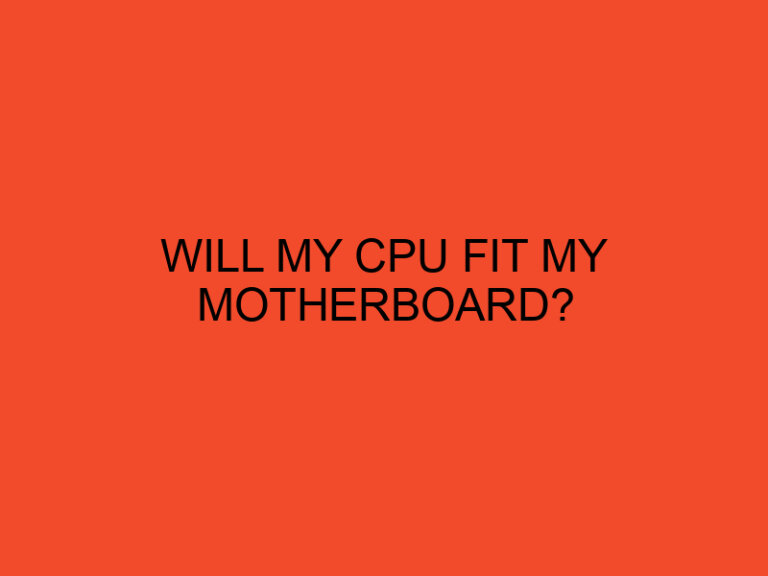In the world of gaming, the performance of your computer’s central processing unit (CPU) plays a crucial role in determining the overall gaming experience. The CPU is responsible for executing instructions and carrying out tasks in various applications, including video games. In this article, we will explore the significance of the CPU in gaming and understand how it affects the gaming performance.
Table of Contents
How Much Does a CPU Affect Gaming?
When it comes to gaming, players expect smooth gameplay, high frame rates, and quick response times. While a good graphics card and sufficient RAM are essential, the CPU is the brain of the computer that handles all the calculations and processing required to run games effectively. In this article, we will delve into the impact of the CPU on gaming performance and explore the factors that determine its effectiveness.
The Role of the CPU in Gaming
The CPU’s primary function in gaming is to handle the game’s artificial intelligence, physics simulations, and other calculations necessary for gameplay. It interprets instructions from the game software and executes them to generate the desired outcomes on the screen. The CPU also manages background tasks, such as operating system processes and background applications, while you play games.
CPU Performance Factors
Several factors contribute to the overall performance of a CPU, and understanding them is crucial when evaluating how much a CPU affects gaming. Here are three essential performance factors:
Clock Speed
Clock speed refers to the number of cycles a CPU can execute per second, typically measured in gigahertz (GHz). A higher clock speed means the CPU can process instructions faster, resulting in quicker response times and smoother gameplay.
Number of Cores
Modern CPUs feature multiple cores, allowing them to handle multiple tasks simultaneously. Games that can utilize multiple cores benefit from improved performance and responsiveness. A higher number of cores enables better multitasking, ensuring background processes don’t interfere with gaming performance.
Cache Size
The cache is a small amount of high-speed memory integrated into the CPU. It stores frequently accessed data for quick retrieval, reducing the time it takes for the CPU to access instructions and data. A larger cache size can enhance gaming performance, especially in scenarios where the game requires frequent data access.
CPU and Gaming Performance
The CPU plays a significant role in determining gaming performance. It affects the frame rates, load times, and overall smoothness of gameplay. A powerful CPU with a high clock speed and multiple cores can handle complex calculations and simulations more efficiently, resulting in a more immersive gaming experience.
However, it is important to note that the impact of the CPU on gaming performance can vary depending on the specific game and its requirements. Some games heavily rely on CPU performance, while others may be more graphics-intensive and demand a powerful graphics card. It is essential to strike a balance between CPU and GPU performance for optimal gaming results.
CPU Bottlenecks in Gaming
In some cases, the CPU may become a bottleneck, limiting the overall gaming performance. This bottleneck occurs when the CPU cannot keep up with the demands of the game, causing a drop in frame rates and slower response times. CPU bottlenecks can be mitigated by upgrading to a more powerful CPU or optimizing in-game settings to reduce the CPU’s workload.
Upgrading Your CPU for Gaming
If you find that your current CPU is struggling to handle the demands of modern games, upgrading to a more powerful CPU can significantly improve gaming performance. When selecting a new CPU, consider factors such as clock speed, number of cores, and cache size. Research the recommended system requirements for the games you play and choose a CPU that meets or exceeds those specifications.
Overclocking and CPU Performance
Overclocking refers to running a CPU at a higher clock speed than its default settings. It can provide a performance boost but requires careful consideration and cooling solutions to prevent overheating. Overclocking can be an effective way to squeeze out additional performance from your CPU for gaming purposes, but it should be done with caution to avoid potential risks.
Future Trends in Gaming CPUs
As technology advances, CPUs designed specifically for gaming are becoming more prevalent. Manufacturers are developing CPUs with higher clock speeds, increased core counts, and improved efficiency to meet the growing demands of modern games. Additionally, advancements in artificial intelligence and machine learning may lead to CPUs optimized for better in-game physics, advanced AI opponents, and more immersive virtual worlds.
Conclusion
The CPU’s impact on gaming performance is significant and should not be underestimated. A powerful CPU can enhance frame rates, reduce load times, and provide a smoother gaming experience. When considering a CPU for gaming, factors such as clock speed, number of cores, and cache size should be taken into account. Upgrading your CPU or optimizing its performance through overclocking can greatly improve gaming performance. As technology progresses, we can expect CPUs tailored specifically for gaming to deliver even more impressive results.
FAQs
How does a CPU affect gaming performance?
The CPU influences gaming performance by handling calculations, artificial intelligence, and physics simulations. A powerful CPU with a higher clock speed and multiple cores can improve frame rates and overall smoothness of gameplay.
Can a CPU bottleneck gaming performance?
Yes, if the CPU is not powerful enough to keep up with the demands of a game, it can become a bottleneck, leading to lower frame rates and slower response times.
What factors should I consider when upgrading my CPU for gaming?
When upgrading your CPU, consider factors such as clock speed, number of cores, and cache size. Research the recommended system requirements for the games you play to ensure your new CPU meets or exceeds those specifications.
Is overclocking a CPU beneficial for gaming?
Overclocking can provide a performance boost for gaming, but it requires careful consideration and proper cooling solutions to prevent overheating. It should be done with caution to avoid potential risks.
What are the future trends in gaming CPUs?
Future gaming CPUs are expected to have higher clock speeds, increased core counts, and improved efficiency. Advancements in artificial intelligence and machine learning may lead to CPUs optimized for better in-game physics, advanced AI opponents, and more immersive virtual worlds.





